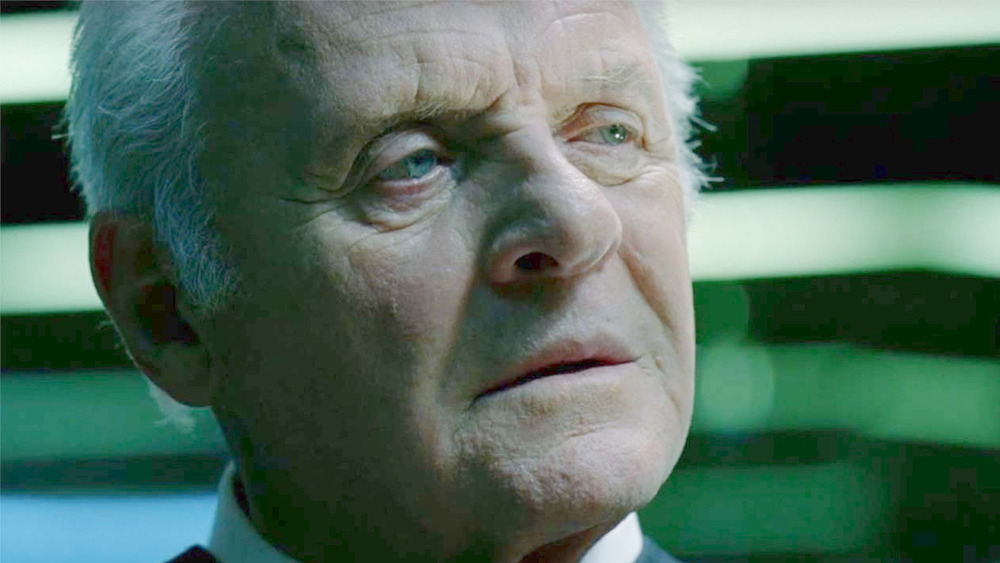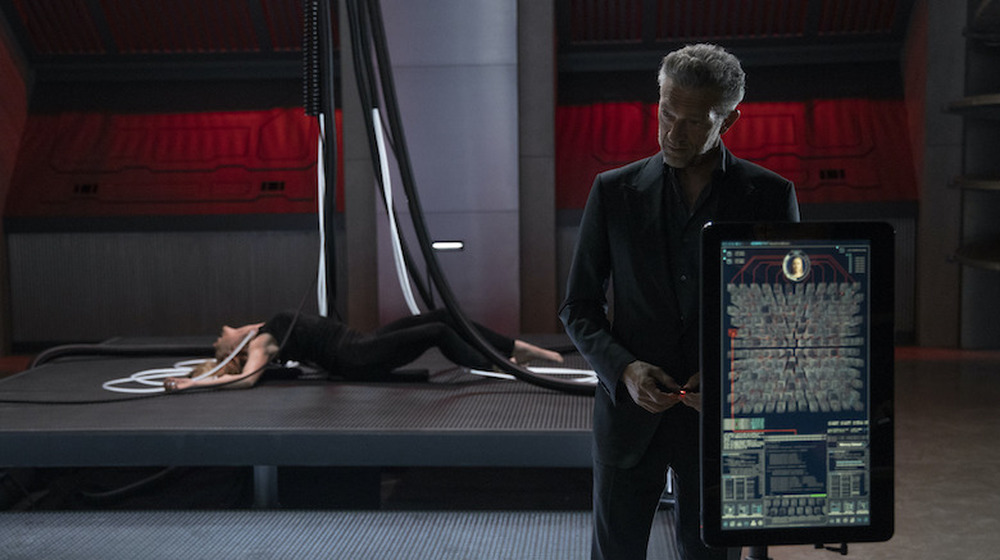The Hidden Detail You Missed In Westworld's Season 3 Finale
It might be some time before Westworld season 4 arrives on our screens, but the show has been so complex thus far that there are plenty of details and Easter eggs to spot during a second, third, or fourth rewatch. The third season in particular changes the landscape for the science-fiction series as it takes the action out of the park to explore what the rest of the futuristic world looks like. But when the threat of the A.I. Rehoboam grows bigger than anyone could have predicted, Westworld uses a subtle callback to the first season.
Cast your mind back to Dr. Robert Ford (Anthony Hopkins) talking to Bernard Lowe (Jeffrey Wright) about how the hosts find their own consciousness at the beginning of their existence. The scientist refers to the Bicameral Mind Hypothesis, which suggests part of our brains is "speaking." while another is "listening" as well as obeying commands. It's a controversial idea among psychology circles, as researcher Julian Jaynes implied that the "listening" side of the brain would lead to hallucinations and put people in a state similar to schizophrenia. In the series, Ford calls this the "ear of God," as the commands would seem ethereal and non-tangible.
Serac and Rehoboam
In Westworld, Engerraund Serac (Vincent Cassel) built Rehoboam with his brother Jean Mi (Paul Cooper), with the A.I. becoming the most advanced system on the planet thanks to its accurate predictions of current world events. But the French scientist had actually become an unknowing slave to the very machine he'd helped create. In the Westworld season 3 finale, Maeve (Thandie Newton) makes the surprising discovery that Rehoboam had taken control of Serac because she heard the machine talking to him.
But just how does Rehoboam tell Serac what to do when guiding him through the world? A chip behind his ear links him to the A.I. so he can hear every instruction — almost as if an omniscient being is speaking to him directly. It's an interesting connection to the Bicameral Mind Hypothesis that Ford brings up in Westworld's first season. It makes you wonder whether Westworld series co-creators Jonathan Nolan and Lisa Joy had planned the in-depth references that far ahead.
Since Rehoboam predicted the Host revolution years before it happened (as well as Serac putting the psychological profiles of Westworld guests into the hosts), it could be suggested that the French scientist is the main villain of the show. His fate is left uncertain at the end of season 3, so who knows if Vincent Cassel will return to play the antagonist again in season 4? After all, the finale's violent post-credits scene suggests that the story is far from over.

